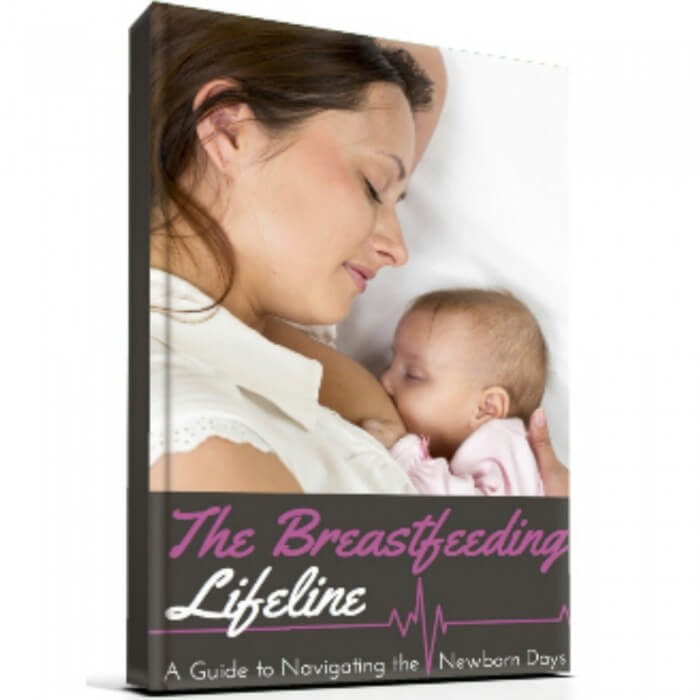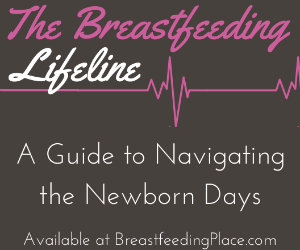When a woman has a baby, it’s both a miraculous and overwhelming event. Suddenly you have a precious little bundle of joy that is completely dependent upon you for survival. They are so precious, tiny, and vulnerable.
Breastfeeding Jaundice: Keeping Your Nursing Relationship Intact
A new mother has a seemingly endless list of concerns upon her baby’s arrival, especially if it is her first child. She can easily become inundated with the information available when an issue arises. Some women get so overwhelmed that they begin to tune out their own instincts and blindly follow any advice offered to them, even when their gut tells them that they need to try something different. First time mothers are especially susceptible to this because they simply do not know what to do. So what happens if a new mom is told that her baby has jaundice and that it will be difficult to breastfeed because of it?

What is Jaundice?
From the CDC:
Jaundice, or yellowing of the skin and eyes, occurs when a normal substance, bilirubin, builds up in the newborn’s bloodstream faster than the liver can break it down and excrete it through the baby’s stool.
Some doctors will tell mothers that if if their infant has jaundice, they will most likely HAVE to supplement with formula in order for their baby to overcome the diagnosis. They may even give a speech about how exclusively breastfed babies have a hard time recovering properly without the supplementation and then offer some samples to get the process started there in the hospital.
If a woman’s body produces breast milk with no issue, the case of jaundice isn’t overly severe, and the newborn has not shown any serious difficulty in nursing, it is absolutely possible to maintain a breastfeeding relationship without the introduction of formula.
Jaundice Treatments
There are many treatments for jaundice, depending on the severity of the condition.
Very mild cases require little to no treatment. A mother may be instructed to simply lay her baby in direct sunlight periodically through the day.
Moderate cases may require phototherapy. With my second child who had a moderate case of jaundice, the day we went home from the hospital, a medical supplier brought us a bili blanket, a portable phototherapy device. To use it, we were instructed to lay our son on top of it in just his diaper while it was on and swaddle it and him together. The hardest part about this arrangement was that we were supposed to leave him lying on the bili blanket as much as possible, so we couldn’t carry him around as much as we would have liked to at that time.
Severe cases may require blood transfusions.
No matter the level of jaundice, it is very important for babies to stay well hydrated. That is why many doctors are quick to jump to formula supplementation. Formula is easier to measure and see how much baby intakes.
Breastfeeding and Jaundice
- Nurse your baby as much as possible, ideally at least 8-12 times daily (breast milk helps eliminate bilirubin since it helps them have more frequent stools)
- Know your baby’s feeding cues, so you don’t miss an opportunity for a feeding
- Make sure your baby has a proper latch and gets a full feeding at each nursing session
- Do not supplement with sugar water
- Remember that nothing about your breast milk is bad for baby
- Trust your Mommy instinct, but if things worsen don’t hesitate to speak to a lactation consultant and your doctor
While I’m certainly not advocating for anyone to ignore a doctor’s diagnosis and advice, I am suggesting that you don’t always have to squash your gut feelings just because a doctor is advising something different from what you feel is right.
For more information on newborns with jaundice and breastfeeding:






First, I would caution every mom to get their baby tested if they notice yellowing. My first had breast milk jaundice, which left her yellow for a long time, but her blood work indicated it was not severe enough for treatment. She was exclusively breastfeed (and I nursed her for 26 months).
My now five-month old son was also jaundiced. I probably would not have been concerned enough to take him but we had to take him in the day after he was discharged for blood work (to make sure he didn’t have an infection from the hospital failing to get me adequate antibiotics prior to his birth). Anyway, his levels had gone from an eight to almost twenty-one overnight (which is almost brain damage territory) but his skin wasn’t any more yellow than my daughter’s had been and he was acting normally. This taught me to never risk it!
He was in the NICU until he was almost two weeks old because they couldn’t get his levels to stay down. However, I pumped and he has had nothing but breastmilk his whole life. By pumping, we could measure his intake and output just as you could with formula, plus he was able to stay under the lights as long as possible. Pumping often enough was certainly not easy, but I received the added benefit of cranking up my supply early on, which has been a real benefit (I struggled with supply issues with my daughter).
Good luck to anyone facing similar issues and hang in there! You will get through it 🙂